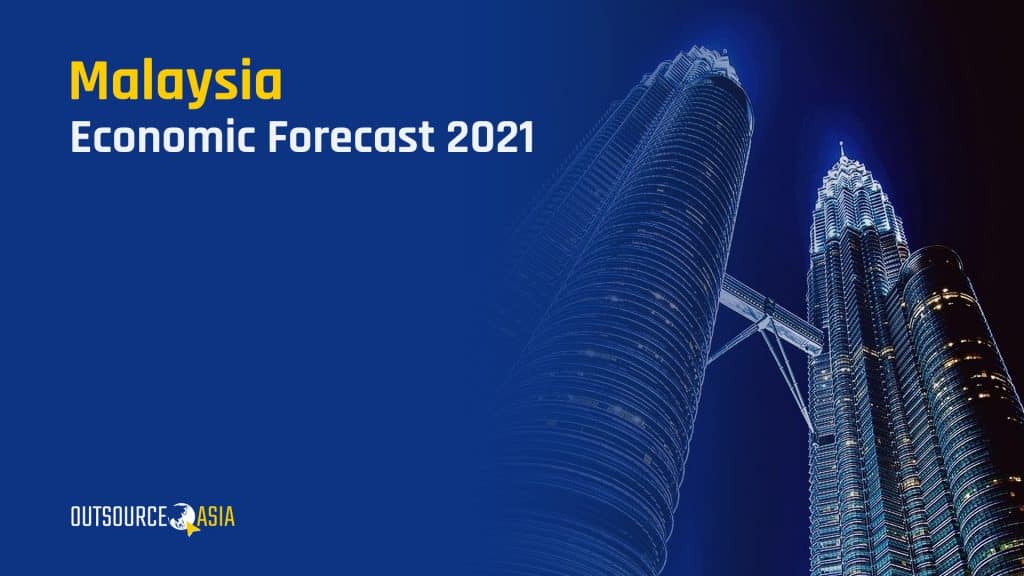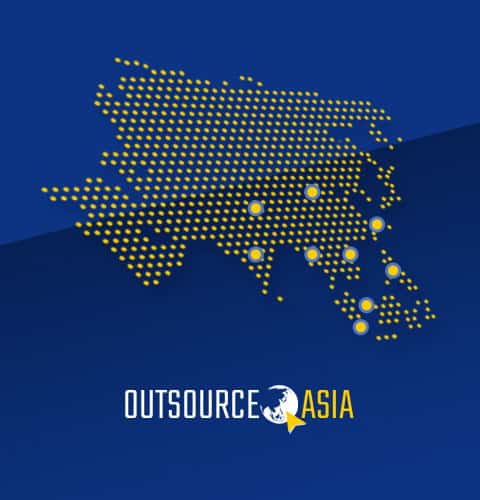
Malaysia Economic Forecast 2021
The Malaysia Economic Forecast 2021 summarizes key economic and social developments over the past year. It also presents findings on the evolution of policy reforms, external/global conditions, and financial-market dynamics from world-recognized financial institutions and multinational professional services authorities, assessing their implications for the country’s medium-term economic outlook.
Malaysia’s economy continues to reel from the scarring effects of the response to the COVID-19 global pandemic. Bank Negara Malaysia, the country’s central bank, lowered its 2021 economic forecast from the 6.0% to 7.5% projected growth in Q1 to 3.0% and 4.0%. Finance Minister Tengku Datuk Seri Zafrul Abdul Aziz said last July that GDP estimate for 2021 will face adjustments despite potential containment of the current new infection surge. Even the World Bank Group had to revise Malaysia’s economic growth projection from 6.0% to 4.5%, citing the slower-than-expected vaccination program and resurgence of COVID-19 cases.
“We’re in the midst of revising it (GDP estimate 2021) to around 4.0% which is currently at 6%-7.5%,” Tengku Zafrul said. He believed that the government needs to fund additional stimulus packages and raise the debt ceiling from 60% to 65%. “Our focus today is for the economy to open safely.”
“The lockdown will continue to impact Malaysia’s GDP growth, besides ineffective containment of the pandemic as well as slower vaccinate rate and political uncertainty,” World Bank senior economist Shakira Teh Sharifuddin explained.
“Markets are priced up for a deteriorating economic outlook as the Covid wave shows no signs of subsiding,” said Prakash Sakpal, senior economist at ING Groep NV in Singapore, who believed that the elevated political uncertainty is also making matters worse for the markets.
“Malaysia’s growth recovery is expected to broadly resume in the later part of the second half of 2021 and improve going into 2022,” said BNM Governor Nor Shamsiah Mohd Yunus.
However, an extension of lockdown measures will weaken domestic demand again, according to the Asian Development Bank. “Business conditions for manufacturers deteriorated sharply in June under stricter containment measures. “Greater downside risks are likely as rising infections show no sign of abating,” it said in the report.
Continued movement restrictions will lead to slower wage growth and decreased private consumption. Businesses, particularly micro, small, and medium enterprises (MSMEs) will continue to face revenue losses, with 64% already filing reports during the 2nd Conditional Movement Control Order (CMCO) in Malaysia. “Important social protection measures are needed to help vulnerable Malaysians survive the current economic storm and thrive in a new post-pandemic reality. Protecting livelihoods is important so that those who have lost their jobs and businesses are able to get back on their feet and contribute to Malaysia’s economic recovery,” said Firas Raad, World Bank Group Representative to Malaysia and Country Manager.
- Based on a summarized report from the Department of Statistics Malaysia (DOSM), recovery to pre-pandemic economic activity will vary across different industries given that some have been impacted more severely e.g., tourism-related sectors.
- Private consumption and investments as well as vaccine rollouts are main drivers of economic rebound.
- Projected 7.2% increase in global merchandise trade volume will fuel stronger demand for goods and services exports.
- Malaysia lost $3.4 billion worth of foreign direct investment (FDI) in 2020 and with projected decline of between 5% and 10% in global FDI flows in 2021, it will continue to have negative impact on local businesses.
- Continued US-China trade tensions will improve Malaysia’s attractiveness as investment and outsourcing destination to take advantage of its vibrant electronic industry.
- The US-imposed $50 billion worth of tariffs on China-made products could result to more expensive raw materials and intermediate goods in Malaysia such as palm oil, solar panels, and chemicals.
- The government will face an uphill battle towards boosting economic growth due to fiscal deficit which is equivalent to 7.0% of its 2021 GDP, higher than the estimated 5.4%.
- The labor market is continuously experiencing uneven recovery with the overall unemployment rate remaining elevated but stable at 4.8%.
- The government is currently providing $35 million worth of wage subsidies, cash aid, and unemployment assistance to more than 700,000 unemployed workers.
- As measured by the consumer price index (CPI), inflation rate at 4.7% during Q2 2021 is at its highest since 2018 which is due to the increase in the transport index (housing, electricity, gas, water) and the index of food and non-alcoholic beverages.
- Bank Negara Malaysia (BNM) will continue to maintain the historical low 1.75% overnight policy rate (OPR) until year-end to create enabling conditions for a sustainable economic recovery.
- Malaysia’s ringgit hit a ten-month low in July due to the third wave of COVID-19 infections in Malaysia as well as the possible exclusion of Malaysian government bonds from the FTSE Russel Global Bond Index.
- The ringgit, however, will likely benefit from a weaker U.S. dollar, steady global crude oil prices, and the eventual reopening of the economy.
- The government aims to vaccinate up to 50% of the eligible population by September in Kuala Lumpur and its other three main economic hubs which contribute a combined 55% to the national GDP.
Weathering the Surge: Malaysia’s Near-Term and Long-Term Policy Measures
- Saving Malaysian lives and their livelihoods
- Strengthen smart containment procedures prior to implementation of less stringent movement control protocols
- Accelerate vaccine rollout pacing for providing faster and more adequate population protection
- Provide additional targeted financial aid and economic assistance to vulnerable households and businesses
- Immediate relief packages to firms to increase business efficiency and productivity
- Provide clear eligibility rules for applications on government-supported financial programs
- Extend conditional wage subsidies to limit further layoffs among the elderly, blue-collar earners, and part-time workers
- Expedite approvals and disbursements of loans made by individuals and businesses
- Recalibrate digital capability and green programs to boost economic activity among MSMEs
- Develop more efficient, more inclusive, and digital-supported loan application processes, credit decisioning practices, and other financial services
- Implement deep structural reforms to achieve higher rates of more sustainable productivity growth
- Companies need to embrace innovation or the adoption of better management techniques and new technologies to enable workers to get involved with higher productivity activities
- Take advantage of digital tools not only for sales and marketing functions but also for expanding opportunities for remote work arrangements, introducing new products, and increasing access to larger markets
- Productivity gains can be realized through reforms to the ownership structure of companies, increase in competition intensity, and continuous investments to high quality education and training
About Outsource Asia
Outsource Asia is committed to providing industry and technology expertise, solutions, frameworks, and tools to businesses looking to explore, build, and manage outsourced teams. Its seasoned outsourcing professionals connects organizations of all sizes and types to top-notch outsourced suppliers and service providers in the Philippines and around the world.
What services do you want to outsource? Schedule for FREE CONSULTATION today.


